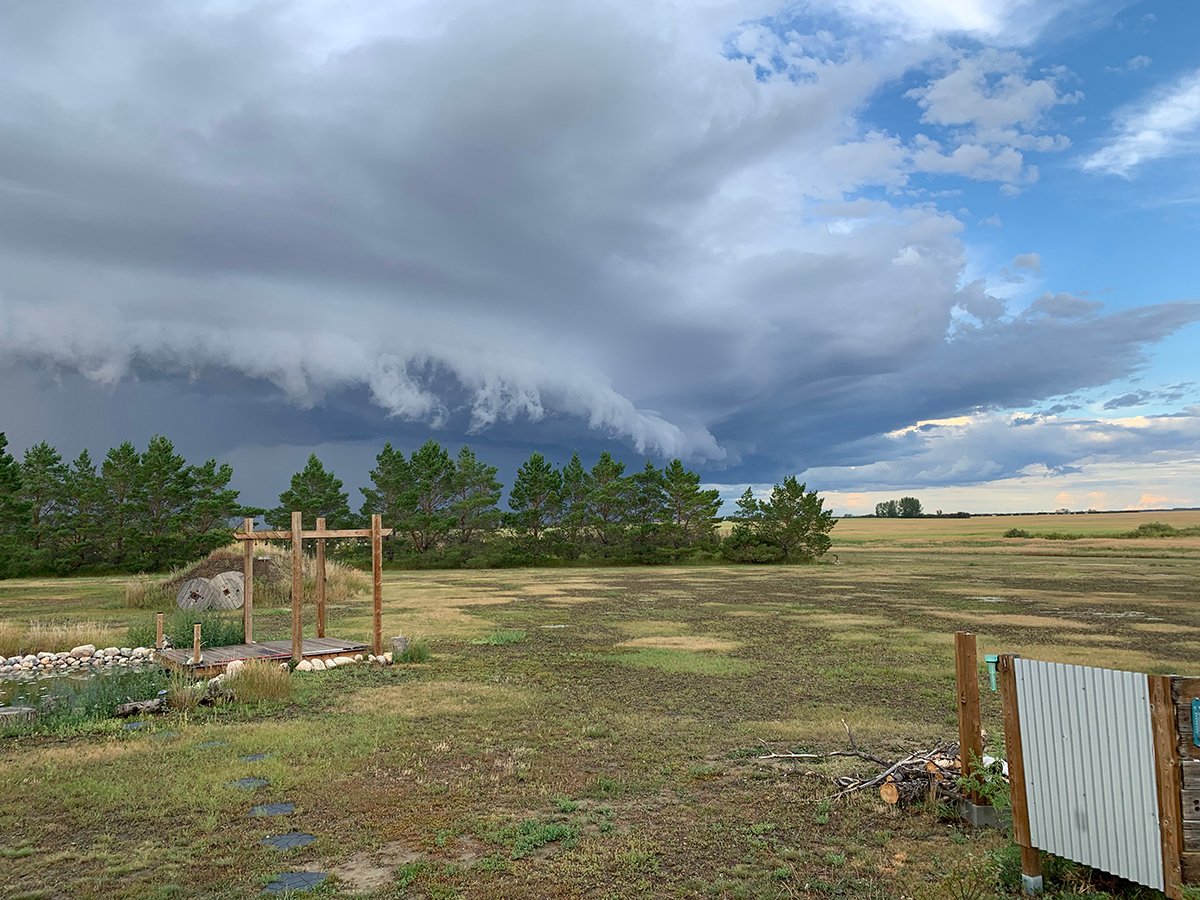Analysts, industry disagree | Some analysts say mine expansion is no longer viable yet companies are forging ahead
Some fertilizer industry analysts say the demise of a Black Sea potash cartel spells the end to BHP Billiton’s massive Jansen mine project.
Patricia Mohr, vice-president of economics with Scotiabank, expects potash prices to drift towards $350 US per tonne during the next six to 12 months, down from June highs of $417.50 per tonne.
“At that price level, new mine de-velopment will not be justified,” Mohr said in an email to The Western Producer.
“Greenfield mines require high prices to yield a target rate of return on high capital costs. Hence, I believe the Jansen mine and other greenfield mines will be delayed for some time.”
Read Also

Storm dynamics and extreme rainfall
Besides moisture, instability and orographic lift, the next biggest factor that contributes to heavy or extreme rainfall is storm dynamics.
BHP’s chief executive officer shrugged off the collapse of one of the world’s two biggest potash cartels, saying that BHP was taking a long-term view of its planned entry into the industry.
“We think very long term. This is something that’s happened short term,” Andrew Mackenzie told re-porters after a speech he made in Australia last week.
“We’ve always said that potash is a business which will lose some of its cartel-like structure and become in time globally traded like everything else, so we, to some extent, predicted what happened.”
BHP has already spent about $1.2 billion on preliminary work of what is expected to be a $15 billion mine project at Jansen.
The company continues to work on the production and service shafts at the mine and on the detailed engineering and design work required to complete the project’s feasibility study.
One year ago BHP put project approval on hold due to faltering revenues. Mackenzie said he would have more to say about the outlook for potash and the Jansen mine project when the company reports on its earnings on Aug. 20.
Share prices of a number of major fertilizer producers plummeted in the wake of an announcement by Russian potash producer Uralkali that it was pulling out of the Belarusian Potash Co. cartel.
The speculation is that the move will cause potash prices to collapse, making manufacturers less profitable and future mine projects less desirable.
The CEO of Uralkali expects prices to fall 25 percent, down to $300 per tonne.
PotashCorp chief executive officer Bill Doyle isn’t buying that forecast.
“We don’t see that. We haven’t seen that so far,” he said during a webcast last week where he responded to shareholder questions.
Doyle said no one company determines prices. Uralkali is a minor player in North America, which is PotashCorp’s largest market, so he sees minimal price impact in that key market.
Doyle believes the spat within the Belarusian Potash Co. will be short-lived based on historical precedent.
“My guess is shorter rather than longer and the reason why I say that is logic tends to prevail. I don’t find too many people who self-destruct intentionally. It doesn’t make sense,” he said.
But he agreed with analysts like Citigroup who said the break-up of the Belarusian Potash Co. may signal “game over” for BHP’s $15 billion Jansen mine project.
Doyle said greenfield projects or new mines were uneconomical even before the breakup of the cartel. PotashCorp’s recent brownfield or expansion projects cost the company between $500 and $1,000 per tonne of capacity. A greenfield project costs between $2,500 and $3,500 per tonne today.
Agrium said it is forging ahead with boosting potash capacity by 60 percent to as much as 3.2 million tonnes at Vanscoy, Sask., by the end of 2014.
Construction of the brownfield project, costing $1,500 per tonne or about $1.7 billion, is about 40 percent complete.
“We think it’s still a very robust project for us and we are committed to it,” said chief operating officer Chuck Magro, adding that the project is viable even if potash prices drop steeply.
Bank of America Merrill Lynch believes the green light is less likely to happen for the Jansen mine project given the predictions for faltering potash prices.
Merrill Lynch analysts think BHP should drop the Jansen mine project and spend the $15 billion ac-quiring Mosaic, according to an article that appeared in The Wall Street Journal.
Mosaic would provide BHP with 12 million tonnes of annual potash production capacity versus the 10 million tonne potential of the Jansen mine.
Mosaic is valued close to $15 billion and BHP could sell off Mosaic’s phosphate business for about $8 billion, according to Merrill Lynch.
BHP’s previous attempt to take over PotashCorp was thwarted by the Saskatchewan government but that would be unlikely in this case because Mosaic is already foreign owned, said the Merrill Lynch analysts.















